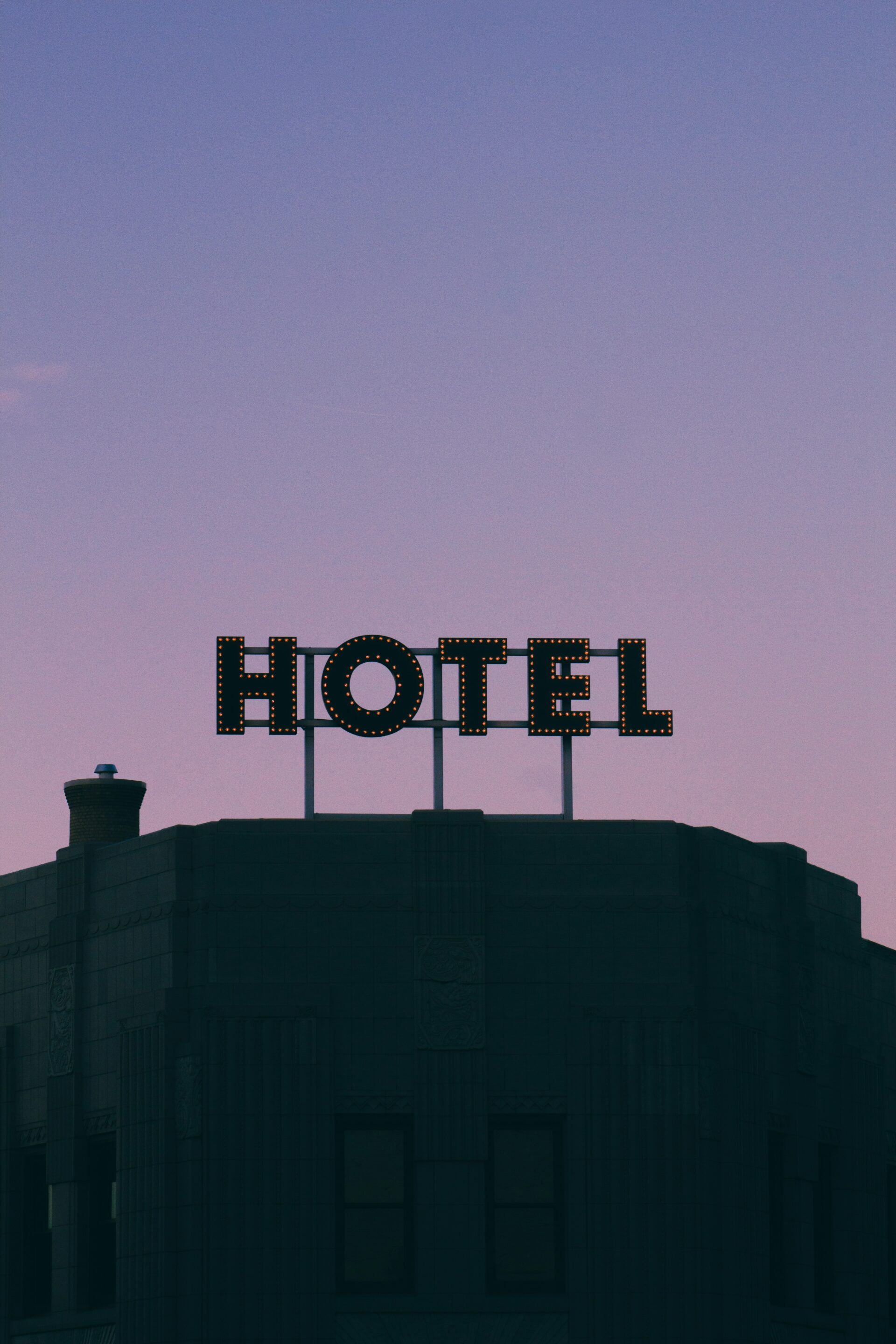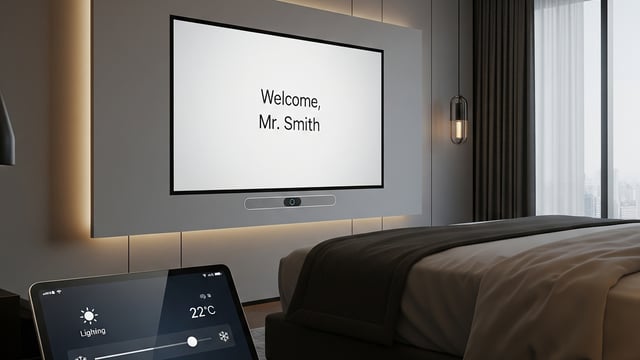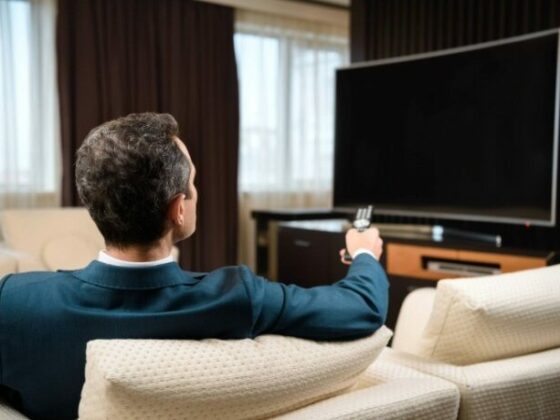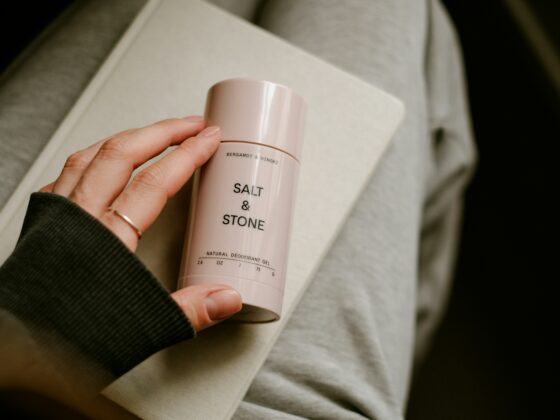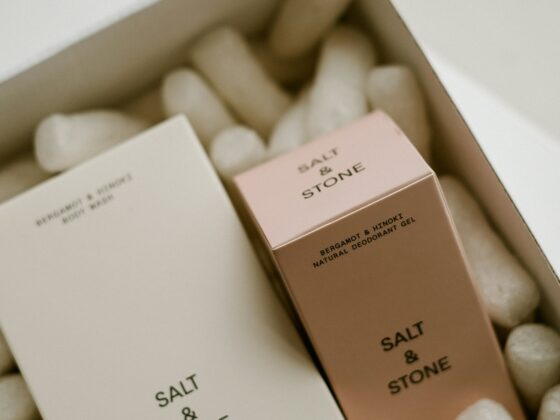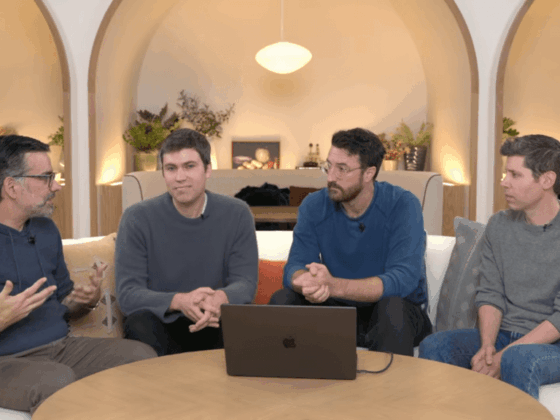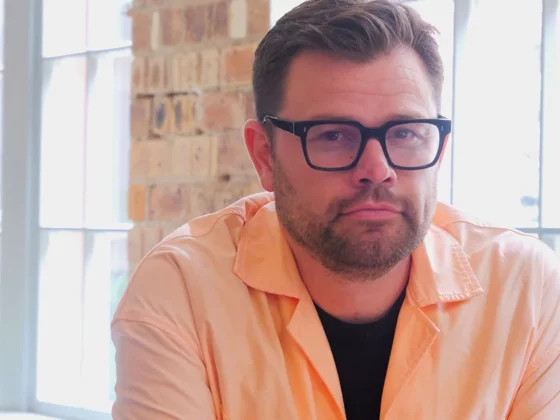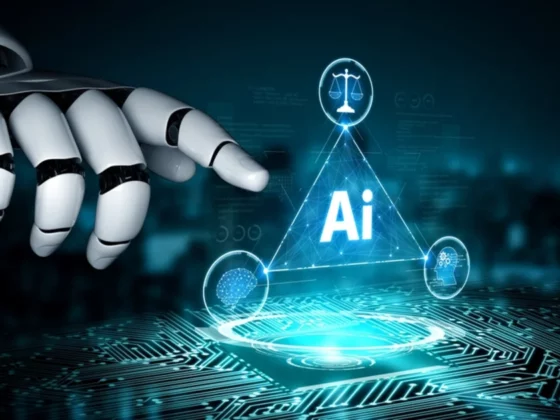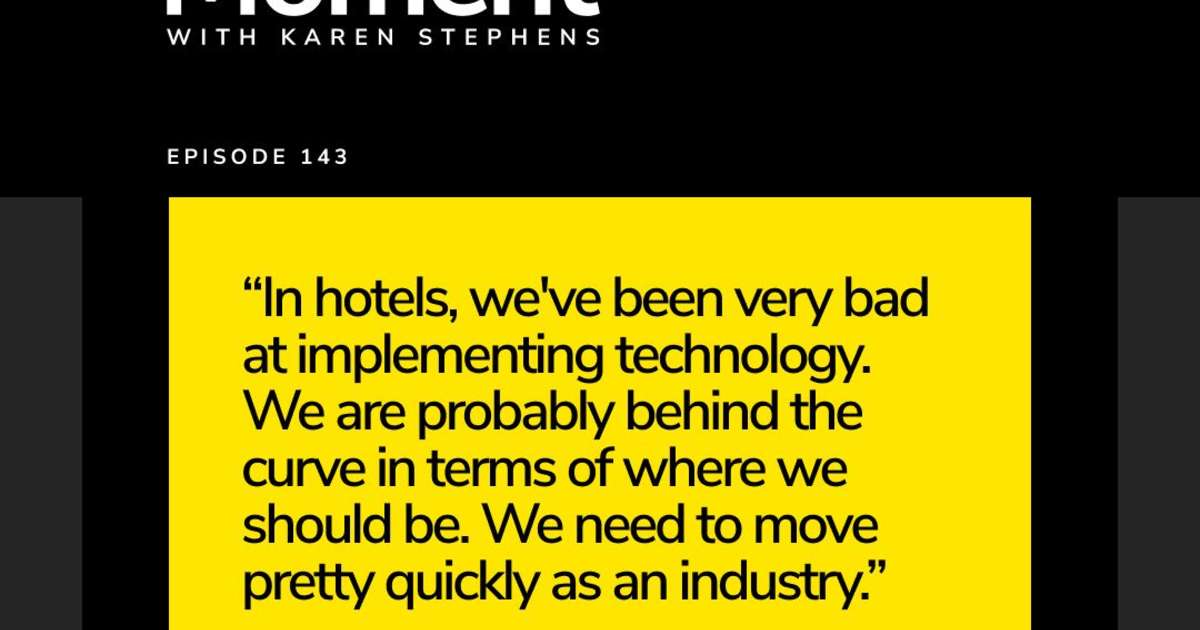
In this week’s episode of Hotel Moment, Neil Braude, COO at the Imperial London Hotels, joins Revinate CMO Karen Stephens to explain why your hotel may be limiting your revenue and performance potential — and why you’re better off adopting AI when it comes to personalizing the guest experience.
Neil describes AI as a tool — one that improves staff productivity and stimulates more guest-facing conversations that add to the high-touch service standards guests are looking for. And as technological innovation in hospitality continues to gain traction, Neil encourages hoteliers to resist falling behind when it comes to adopting AI. Because as hoteliers work with larger and larger data sets, they’ll need to rely on AI more than ever to truly make sense of their data and get to know their guests.
Tune in and find out how to keep your hotel running efficiently to keep up with the guest experience.
Meet your host
As Chief Marketing Officer at Revinate, Karen Stephens is focused on driving long-term growth by building Revinate’s brand equity, product marketing, and customer acquisition strategies. Her deep connections with hospitality industry leaders play a key role in crafting strategic partnerships.
Karen is also the host of The Hotel Moment Podcast, where she interviews top players in the hospitality industry. Karen has been with Revinate for over 11 years, leading Revinate’s global GTM teams. Her most recent transition was from Chief Revenue Officer, where she led the team in their highest booking quarter to date in Q4 2023.
Karen has more than 25 years of expertise in global hospitality technology and online distribution — including managing global accounts in travel and hospitality organizations such as Travelocity and lastminute.com
Watch the video
Transcript
Neil Braude Official Transcript
[00:00:00] Neil Braude: It’s not about removing staff at all, but it’s about letting those people do other stuff that adds more value to the business, whether it’s talking to guests, being in front of guests. [00:00:12] Karen Stephens: Welcome to the Hotel Moment podcast presented by Revinate, the podcast where we discuss how hotel technology shapes every moment of the hotelier’s experience. Tune in as we explore the cutting edge technology transforming the hospitality industry and hear from experts and visionaries shaping the future of guest experiences. Whether you’re a hotelier or a tech enthusiast, you’re in the right place. Let’s dive in and discover how we can elevate the art of hospitality together. Hello, and welcome to the Hotel Moment podcast. I’m your host, Karen Stephens, the Chief Marketing Officer of Revinate. And today, we are excited to speak with Neil Braude, the Chief Operating Officer at the Imperial London Hotels Limited. With 16 years of experience in hotel operations, revenue management, and a deep understanding of both luxury and independent hotel environments, Neil has developed a reputation for delivering operational excellence and outstanding guest experiences. His unique approach blends traditional service with modern technology, aiming to streamline operations while maintaining the human touch. From overseeing multiple hotels in the heart of London to embracing new technology in the front office, Neil’s insight offers a fresh perspective on how to evolve and grow in the ever changing hospitality landscape. Neil, welcome to the podcast. [00:01:31] Neil Braude: Thank you very much. Great to be here. [00:01:33] Karen Stephens: It’s a pleasure to have you here. So before we get going here, I mean, I want our audience to know you’ve got a really extensive career across all facets of hospitality and now Chief Operating Officer of the Imperial London Hotels. So before we dive into your background, I would love to hear a little bit more about the Imperial Hotels of London. I understand it’s a family owned business. It’s been there for quite a while. Can you give our audience just an overview of the organization? [00:01:59] Neil Braude: Yeah. So certainly been here a while. We’ve been in Bloomsbury or in London a hundred and eighty seven years. Single family ownership, seven generations. And everything we do is really about building it for the future generations of the family. There’s, you know, there’s no private money. There’s no intention to sell, and it’s looking to continue to build bigger and better. We’ve been London’s best kept secret for a while, and our journey is to really start to put us a little bit more on the London hotel map. Even though we’ve been here this long, people don’t always know we exist. So it’s really on that journey that we’re on at the moment. We’ve got a major refurb going on at the moment. We run the largest hotel in The UK. So, you know, so a couple of things that no one really knows about us, but it’s all on that journey too. [00:02:45] Karen Stephens: That’s wonderful. It must be incredible to work for an ownership that’s a family, as you said. There’s not a bunch of different management companies, it’s just a single family this whole time. So that must be incredible. I mean, I think about, as we’re all heading into budget season now. Can you just give us an idea of how that might vary from your standard operating in hotels? [00:03:03] Neil Braude: I mean, I’m very fortunate. I genuinely think we have the nicest owners in hospitality. You know, they generally care about people. I mean, I know everyone says they do, but they really do. We put people at the heart of everything we do. And a line that we kind of came out of COVID is that we don’t actually run and manage seven hotels. We only run and manage seven buildings. It’s only when we put the people inside that they become hotels. That’s when the magic happens, and that’s both our people and our guests. So that’s kind of everything we’ve built around the company. It’s all around memorable stays for everyone, which applies to our team as much as it does guests, because without them, we don’t really have a business. And we all learned that the hard way in hospitality, so it’s a real focus point. So having family in the, they’re in the business, both owners are very involved. The two who are very involved, they’re in the business five days a week. They sit directly opposite me. So it’s everything they do. It’s kind of everything they believe in. So they’ve hugely part of the business, true hospitality people, and, you know, they’ve, it’s grown up in their blood. So very different to the corporate environments that I’ve been in before for sure. [00:04:06] Karen Stephens: Absolutely. Well, that’s incredible. It really is. And the hotels themselves are located in Central London. So as you mentioned, like, let’s get some, maybe you haven’t heard of you, if our listeners haven’t heard of the Imperial London hotels, they’re really centrally located. Talk a little bit about that. [00:04:21] Neil Braude: So all centrally located and probably slightly unique in this space because we almost operate as a little bit of a resort model in the fact that all seven hotels are within a five minute walk of each other. So really unique in that space, three and a half thousand rooms. In quite a small, so it’s a huge number of rooms, not just seven hotels. They all most of them are all beasts to run and within five minute walk of each other. So in challenging markets specifically, like, at the moment, it is more of a challenge because we are our own direct competitors as much as anything else. So it’s trying to balance their pros and cons, like everything, I guess, being so close to each other, but it can put the competitive stakes a little bit higher when everyone’s gunning for budgets and what they’re trying to achieve. And we’ve gotta just make sure that, you know, we start off with a group quote at 20 at £200 by the time we finish. The guests have paid £80, and they’ve just moved around from all the hotels. So, you know, it comes with its challenges of making sure we’re not cannibalizing each other and we’re doing our own money rather than individual winners rather than the group. So it has its challenges. But, yeah, we’re all in Bloomsbury, center of London, so great location. And it’s a big piece of what we’re trying to build Bloomsbury as an area. Now there’s lots coming in. There’s a lot more hotels coming in, but we are working with five landowners at the moment in the area because we are big part of that to really grow Bloomsbury and put it on the map of London because it’s a little bit of a hidden gem in London. [00:05:47] Karen Stephens: Right. Fantastic. Fantastic. So, Neil, you’ve had an extensive career across areas of hotel operations. So can you give us, you know, kind of the key moments that shaped your path to becoming the chief operating officer in your current position? [00:06:01] Neil Braude: I think they’ve been I mean, obviously, moving to London was a key step of that. I grew up in South Africa, trained in South Africa, you know, and had the experience of working across different hotels in South Africa. So I worked in city center hotels. I worked in the Kruger National Park as part of my training. So kind of those different environments helped gear me up for London. And I think one of the biggest steps in London was my independence. When I moved from Hilton, I went to the Cavendish London, which was on the journey from center of London hotel, but totally independent when I was there. So it was learning that independent stuff and almost having I’d always been in brands before and learning that independence and you kind of, people get frustrated in the brand, but you don’t realize you everyone thinks they want freedom until you realize that freedom actually makes you very much more accountable for every decision you make. Right? You’ve got no guardrails, then you’ve kind of gotta fly on your own. So I think that was quite a big stepping stone in the revenue piece for me in the commercial side, and that then also gave me the opportunity then to move into the operations piece. And then through that learning, we were then acquired by a Singapore company. And I had to kind of help reposition the company staying independent because we were the only hotel that were the service departments or apart hotels at least. So kind of had to bring a single hotel into an apart hotel company where we were very different. They didn’t have a brand for us. What rules do we apply? What rules don’t we apply? And it was quite an interesting journey on trying to balance that, keep staff happy who where we’re making lots of changes, which I think we kind of almost found the right balance. Probably changed a lot, to be fair, now in hindsight. But that was quite a big journey of going through that process. And I think that’s probably the most that I refer back to now. I think probably the biggest piece then through the rest of my career. So that gave me my GM, first GM role in London, and then from then, went on to a few different other properties before my COO role now. So I think all of them geared me up. And I guess, like everything now, it’s I probably wish I knew more as I wish I knew some of the stuff I knew now when I was a GM. I probably, I probably owe some of my previous bosses a few apologies for things I’ve said behind them. When you get frustrated when people are saying things and you’re kinda thinking, now I have a bit more clarity of why those decisions were made and what was happening. And I guess I try to not get frustrated with my GMs and then I’m sure do the same thing and probably rightly, but it’s trying to impart some of that knowledge on them as well. [00:08:25] Karen Stephens: Right. So you mentioned something I think is pretty key and, certainly, timely in hospitality today, which is change. So we’ve got a couple different factors, and change is always happening. But I think the speed at which things are changing now, both on the technology front and kind of in the macroeconomic world, are pretty, what’s the word, it’s just rapid fire, I think, one one way or another. So I’d love to take kind of those two tracks. So first, you know, I’m in The United States. Most of our listeners, I think, are US based. We know the hospitality industry here. It’s been a rough year. There’s a lot of economic uncertainty. ADRs are starting to fall. Occupancies are starting to fall. So first, I would just love to know, you know, as a hotelier in London, how are things going? How’s the business? As they say. [00:09:11] Neil Braude: We’re quite spoiled in London. I guess, even though it’s a bit of a bad year, that just means we’re gonna do 87% rather than 88%. So I think, typically, occupancies you know, I think it’s different slightly for different markets for our space where we’re more in the three star entry level four. Occupancies are just about holding up, but it comes at a cost of price. And it’s that’s much more of the challenge. I think the five some of the five star properties are definitely struggling. We’ve seen a real decline in Middle East business with everything going on in The Middle East. And during Brexit, which is one that probably gets spoken about more here, but probably less obvious in the Brexit pieces that we, foreigners, used to get VAT back, VAT, on all purchases. So effectively, they used to get 20% back, which they don’t get now. So when you had The Middle East and the Chinese market coming into London who are all shopping on Regent Street and spending a lot of money on Louis Vuitton, they’ve all kind of gone to Europe and are doing that there. So we’ve definitely seen a drop off in those markets, both geopolitical and also economic, personal economics in their saving of that. So sthat’s been a real challenge that everyone’s fought with. So London’s tough at the moment. It’s probably more tough on the back end of huge cost increases for UK properties. We’ve had a change in government, which has increased taxes on wages. They’ve increased the minimum wage we’re paying. So, you know, as a business, we’ve seen, over two years, 17% payroll increases, which wouldn’t be the norm for everybody. We again, we’ve had great owners who’ve funded it and supported it, but we’re not gonna be seeing, we’re not seeing that growth in revenue. Some of it’s because we need it and we changes we’ve made in the business, but it becomes a challenge. And my gut feel is that we’re probably gonna be seeing a minimum wage growth of 5% plus next year is my gut feel. And that’s gonna be something that hospitality is gonna have to absorb, and technology is gonna have to play a part to help support some of that to your point on technology. But it’s so we’re struggling with massive cost base cost increases coming off against a relatively flat market, if not slightly behind at the moment. So, yeah, it’s a tough environment at the moment. [00:11:20] Karen Stephens: Yep. That sounds familiar. So we’ve got similar scenarios here with labor shortages and then also the just the operating costs are not going down. They’re ever increasing. So I do think a lot of hoteliers are looking to hospitality to help not only you know, it’s not that we wanna replace staff. I don’t think that that’s really the answer because as you mentioned, hospitality is about people. It’s about people interacting with people. But can you talk to us a little bit about how your company is thinking about using technology to help the staff maybe make their jobs more efficient, increase job satisfaction, and those kinds of things? [00:11:54] Neil Braude: Yes. So we’re rolling out a, I mean, the big piece that we’re doing at the moment, which touch wood next week, Tuesday, we will complete as we’re rolling out a new PMS across the group. And a big piece of that decision on the product that we chose, the reason to move and the product that we chose was really about a product that’s simple to use, easy to train on, you know, reduce that training time from kind of forty hours to proficiency to a receptionist to probably closer to five or six. So to your point of labor shortages, a, bringing. A, when you do manage to recruit staff, it’s easier for them to learn a system. It gives them more confidence to use it. And it’s a system that’s almost touchscreen and looks like the devices they would have as opposed to systems that are outdated, clunky models that are all on keyboards and mouses, which the new generation have never used before and not comfortable using. So that’s been one of the biggest pieces that we’ve used technology, and then we’ve got an active plan to kind of just see how we can use AI and AI agents to just remove the we we do so much time using redundant work that could be done by machines. So to exactly to your point, it’s not about removing staff at all, but it’s about letting those people do other stuff that adds more value to the business, whether it’s talking to guests, being in front of guests. We’re looking after the PMS rollout. We’re looking at bringing in a system to do facilitate online check-in with digits digital keys and all of those pieces. So in effect, get the guest to do the heavy lifting. And I know that’s quite an unhotelier thing to do because in hotels, we tend to have this obsession that a check-in is hospitality. But in my mind, asking for a credit card or passport and getting someone to sign a contract is more akin to buying a house than it is to to hospitality. So if a guest can do a lot of that heavy lifting, which we all do, by the way, when we fly, and everyone’s completely comfortable. So if they can do that, it means that I can free up those receptionists to actually have a conversation and hosts get and be a host much more than just a receptionist checking them in. And I think it’s a much more exciting job for a receptionist. I think it’s a better guest experience for a guest arriving and just being able to host people in as a traditional hospitality business rather than process. [00:14:05] Karen Stephens: Absolutely. Uh, I think one thing that you mentioned there that I wanna double back on is ease of use in technology. So we are you know, as you start to train the next generation of staff that are coming up, they have devices. They have iPhones and iPads and and other kinds of devices. They’re used to an easy user interface, and they just cannot tolerate, you know, the clunky legacy systems of the past. It’s just not gonna work. [00:14:32] Neil Braude: No. And then with the more modern systems, they pick it up instantly. Right? They don’t need almost training on it because they’re so used to it. It almost becomes intuitive, and they can work it out. [00:14:40] Karen Stephens: It should be intuitive. If it’s not intuitive, you’re looking at the wrong technology. So I feel like at this point. Right? [00:14:46] Neil Braude: Yeah. Completely. And I think in hotels, we’ve been very bad at doing that. So we are probably behind the curve in where we should be anyway. So we’re probably starting from not a great place, and we need to move pretty quickly, I think, as an industry. [00:14:59] Karen Stephens: It’s an industry. Right. And then I think for guests as well. I think the next generation of guests coming up, certainly, you know, as things move on, you’re gonna see more Gen z, more more young people that are are make up the majority of travelers. Certainly, Central London, when people are coming to see the world, London’s one of the stops. Whether if you’re American, you go to London. Right? That’s one of your first international travel. And that generation is very comfortable checking in everything, doing everything on their own, 100%. So I applaud your team for moving in that direction. [00:15:30] Neil Braude: Yeah. So that’s what we’re doing. And and it’s not and it’s horses for courses. You I think it’s not a one stop one shop fits all. You have different options. So you still have the option of someone being able to check-in if they don’t wanna do that and they want that experience, but it may not be look like in front of a reception desk with a stand up receptionist. It might be a little bit more relaxed and it might be a little bit more, you know, looking after our team that we have as well and making them feel more comfortable in that environment because that generation are. So it’s relooking at the whole piece, I think, and rechallenging everything, the the way we work, really. [00:16:01] Karen Stephens: Right. Right. It’s the true definition of omnichannel in my view. Right? Including a person. [00:16:05] Neil Braude: Completely. No. A 100%. That’s a great example. Great analogy of it, I think, is that the whole check-in process or whatever it is is an omnichannel. [00:16:13] Karen Stephens: Is omnichannel, even in person. So you also mentioned AI. So how does your staff use AI today day to day, and what what is your perspective on how that has changed the work environment? You mentioned some of that you’re starting to to work with. And so can you give me a little more color on that? [00:16:29] Neil Braude: Personally, I mean, I haven’t done too much research within the group, so it’s very limited. But I’m personally, I’m obsessed with AI and AI agents. I don’t quite know whether they’ll take over the world, but, um, I think they add massive value. And I think we’ve got a job as a business to educate people more on it. I think what a lot of people use it for is very still rudimentary, and they use it probably more as an advanced search engine. They do it for improving their writing and some of the stuff, which is great that they do it for, but it’s not always necessarily it’s done to improve what they’re writing or things like that, but not necessarily from an efficiency point of view. That’s not necessarily consideration. But if you’re writing a letter or you’re doing something, you could put it into AI first to get generate the letter and then tidy it up, which saves you a huge amount. And it will do a lot of some of that legwork to do as an example. So I think but there’s much more advanced. Even that is still the very basics of what it can do, and I think you’re just getting our teams to be more comfortable with it and use it. A lot of people in the business don’t necessarily like it or agree with it, but it is where the world is going, especially. So it’s but it is a reality of it. And I think at this stage, certainly, I don’t think AI will take your job, but people who know how to use AI will because they’ll just be more efficient. They’ll be able to get things done quicker. They’ll be able to reproduce reports quicker. They’ll be able to do all of those things just faster, research faster, do things, and some of the functionality on that you can do with it for deep research and analysis. And that is it’s while it’s in its infancy, it’s still pretty incredible. And I think we have a job to to train our team on how to use it and get better at it as well, because it’s also a good life skill beyond Imperial Land and hotels. You know? Everywhere else they go, whatever job they go to, there’s gonna be an expectation at some level to be better than the next person. And and if that can help you give you a foot up, whether you agree with it or not, it it’s there. And it’s a tool people are using. [00:18:22] Karen Stephens: Yeah. I think that that’s really true. I think if you are resistant to learning how to use AI, I think you also said it exactly right. A lot of people use it right now just as a giant a new search engine, you know, like, I just start to ask more questions. But some of the cool applications we’ve seen, certainly, talking to hoteliers is reporting, which I think you hit on. You know, we I read a stat that it takes the average hotel two to three days to pull a monthly report together, you know, just because all of the data is sitting in different places. So if you’re gonna do anything for a a budget meeting or anything, it takes an enormous amount of time. But if you can get all of that data in one place and apply AI, it becomes a lot more efficient. And, again, you still need it’s not gonna replace the human. It still has to translate that data and present that data, but it can help you. [00:19:09] Neil Braude: Yep. And especially if someone asks or throws a question going, what about this in piece of information, which isn’t something you track monthly? Like you say, just to get that report, it could take you two or three days just to pull that information because, as we know, the legacy systems aren’t particularly good at reporting either. So just trying to find the information and then people to do it manually and do it on spreadsheets and do all of that. Just just to find some fairly simple straightforward piece of information, which, like you say, if you’ve got that data using AI, you can pull that data in minutes. And then it just gives you more power to make decisions, and you can make more informed decisions much quicker. And I think it will teach people the value of data where I think it hurts hospitality because data’s been so hard to get. We’re not particularly good at using it. You know? Often, I have conversations with revenue people, especially when it comes to the OTAs because as you know, no one really likes them. And they’ll tend to when they have data that says x, the revenue people tend to go, I’m not sure that’s true. And you’re going, well, I’m pretty sure that’s what the data says. You kind of gotta trust it because we just we’ve become almost accustomed to making decisions with our gut rather than just with the data. I think because even though we’ve got revenue management systems and all of these things, we’re not the data’s still not as good as it could be or should be. [00:20:19] Karen Stephens: That’s right. It’s hard to trust it. [00:20:21] Neil Braude: Yeah. [00:20:21] Karen Stephens: And we need to get to a point where we can absolutely trust it. That’s such a good point. I think a lot of hoteliers, especially in times like these, do become so reliant on OTAs because they, you know well, when OTAs do have fantastic date well, they have data. We don’t, as you mentioned. Who knows? But I think they’re they’re so good about engaging the guests throughout their journey, doing stuff to encourage loyalty. Like, it really is, I I feel like in times like this, difficult for hotels to compete on that level. But one hotels, I believe, need to remember, and I and I would love your your thoughts on this, is that as soon as the guest hits the front door of that hotel, that guest becomes your guest. And if you’re good at leveraging data, AI, personal interaction, you can then turn that guest into a loyal guest for your group and win that booking back the next time. Do you have any thoughts on on how that works within your company? [00:21:15] Neil Braude: Yeah. I I mean, I think just my general view before I come into the company pieces, I guess, we I mean, I’m slightly odd in the spaces that I quite like the OTAs, and I almost view it as two different pieces. I think we talk about who owns the guest. I think it’s almost owning the guest at two different levels. One is who owns the guest on the Booking Channel. And I think someone can be loyal to booking.com or Expedia or Ctrip or any of the other players, smaller ones, because because you’ve got a loyalty program and you don’t wanna necessarily stay, which is fine because that’s their loyalty preference at that point. But in my mind, as long as their loyalty preference of when they stay in London is Imperial London hotels, then that’s then I own the guest at hotel level, but some booking.com or Expedia may own that guest. And will I be able to it’s my job to try and trans transfer them to get them to book direct. Sure. But if people collect loyalty points on one of those and they travel the world and they do that, are they going to? Not necessarily. So but that’s fine if they do that as long as their first choice in hotel is still Imperial London. And in theory, I’m okay with it, which I think comes back to kinda your question, Karen, how do we deal with that? And it it really is then making sure that we, you know, we we don’t treat those different guests really differently to to our booked direct guest. We don’t we we treat all guests the same. Everyone’s here, you know, our purpose is memorable stays, and it doesn’t matter where you book from, how you book. It’s around that hosted personal experience when you get here, and that’s a big driver, that front office piece with new PMS online checking is to exactly your point. There is own the guest when they walk here. When they walk in, we want them to feel completely welcome and to have a a a true London experience when they’re here. [00:22:53] Karen Stephens: Yeah. That’s great. I need going back to omnichannel. It’s another channel. Right? That’s how however you get here, and then once you’re here, that experience is on the the staff of the hotel to make sure that it’s the best it can be. [00:23:06] Neil Braude: Yep. Exactly that. And I think that’s the best chance of converting them to direct. [00:23:10] Karen Stephens: Absolutely. So you talked at the top of the call a little bit about what you’re trying what you’re going through as a evolving as a company now. So talked a little bit about putting Bloomsbury on the map for London. And how are you thinking about the transformation? Or I don’t know if transformation is the right word. What’s the next lever of growth for Imperial Hotels of London, and and how you’re thinking about expansion? [00:23:31] Neil Braude: I mean, at this stage, we’ve got the the biggest plan that we’ve got in the short term is we’ve got the Imperial Hotel, which is kind of our flagship property, which has been which was due for refurb pre COVID and then COVID hit. So the property’s been closed pretty much since then. And then we picked up the refurbishment after COVID. So we’re opening, all going well, Touchwood, mid next year. May next year, Touchwood, we’re opening, which is our first voyage into you know, all of our properties are kinda more in a three star space. So this is our voyage into the lifestyle brand. So it’s gonna be a 357 bedroom hotel with a rooftop overlooking Russell Square. So that’s the big one that’s coming up. Everyone’s focused on that, delivering that in the next ten months. And then one of the other properties which isn’t part of our brand in terms of Imperial London, but which we also own and manage is the Holiday Inn Bloomsbury, which which is a franchise property. So we’re in the middle of a major refurb there as well. So we’ve kinda got two major refurbs on the go. So, really, the big focus is delivering both of those properties successfully by mid next year. Holiday in Bloomsbury is open and trading while we’re doing the refurbs are different challenges. Right. You know, the short term for expansion is really get through those to launch both properties really well. And then from there, it’s really a case of seeing what we wanna do next, whether it’s further acquisitions across London or or we’ve continued the refurbishment program across the group, which we’ve kind of been working on over the last five years and how we get there. So it’s kind of this evolving program that we’ve got as part of our long term growth and reestablishing ourselves in the London market. [00:25:06] Karen Stephens: Wonderful. And in the midst of all of that, you’re doing a PMS. Like launching a new PMS, is that for all properties or is it a handful or how are you doing that? [00:25:15] Neil Braude: No. We’re doing all properties, so everybody is on it already. It’s it’s come with its challenges. So as as these things always do, but I think we’ll be in a much better place when we get out of it, and we’ll do all of that. But so we’ve got one more to go, which is the Royal National, which is the beast. So we’ve kind of left that to last. So hopefully, we’ve got all the learnings. So that one goes live Monday and Tuesday. [00:25:38] Karen Stephens: Oh, goodness. Okay. That one. Okay. [00:25:41] Neil Braude: Thankfully, we’ve got cleverer people than me working on that. So I think we’ll be I think we’ll be in a great space for it. So we’ve got that going on, and then we’ve got a multitude of other projects across across the group, you know. You know, the bold projects and the redevelopment of that. But exactly to your point earlier, the world is moving so fast we can’t stand still. So we’ve probably got five or six other major projects on the go at the same time, which are either tech related or people related. And that’s because you’ve gotta be really moving. I think we’ve gotta be moving a place and you’ve because otherwise, you just fall further and further behind, and we’re probably paying you a little bit of [00:26:15] Karen Stephens: You fall behind. Well, that that brings me to my my last question, and I would love to get your perspective on this. So for hoteliers listening to this podcast who are looking to adapt and grow, what is the one piece of advice you would give them when it comes to technology adoption and operational improvements, both of what you’re going through right now? So what’s what’s the advice? [00:26:35] Neil Braude: I think don’t be scared of failing. And I think we get into that space, especially with tech. It’s huge it can be hugely frustrating because you look at different systems and everything does, but not everything does everything. And you’ve I think as non tech people, you just kinda get frustrated with it because you want an end to end solution. I’m beginning to think they don’t exist, and I think you just have to accept that certain things work, certain things don’t. And it’s the same, I think, with an operational plan or construction or stuff. Things will go wrong. Things will happen, and I think it’s you’ve got to but don’t be scared of it, I think, if we’re not pushing hard enough as an industry. If we’re not failing, we’re probably not pushing hard enough is kind of how we try and look at it. And I think, especially in the tech space, we should be doing more of that in a in the hospitality space. Especially for the more independent hotels, I think you can compete against the big boys. We’ve got OTAs. We’ve got other ways of distributing. We can we can be more nimble. But it’s don’t be scared of the challenge, I think. Embrace it and be prepared to get things wrong and let you especially for the leaders. Let your teams get things wrong. We’re not. Thankfully, we’re not performing brain surgery. So there’s nothing that we can’t undo, and I think as long as it’s not gonna risk the person as just have fun with it and enjoy it and enjoy the journey of of that and take chances and be prepared to get things wrong. And I think the team will embrace it. And I think if they feel that they can make it, you’ll be I think more things will come out of it and more things will be challenged and tried and more things will got things wrong, but I think we’ll get more things right if we do that. [00:28:01] Karen Stephens: Yeah. I think that’s great advice. Thank you, Neil. I really appreciate your time today. I wish you luck with all the renovations and everything going on, so good luck. [00:28:09] Neil Braude: Thank you very much. Thanks, Karen. Great to see you. [00:28:17] Karen Stephens: Thank you for joining us on this episode of Hotel Moment by Revinate. Our community of hoteliers is growing every week, and each guest we speak to is tackling industry challenges with the innovation and flexibility that our industry demands. If you enjoyed today’s episode, don’t forget to subscribe, rate, and leave a review. And if you’re listening on YouTube, please like the video and subscribe for more content. For more information, head to revinate.com/hotelmomentpodcast. Until next time, keep innovating.Media Team
Media team | Revinate
+1 415 671 4703
Revinate, Inc.
